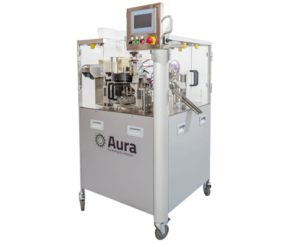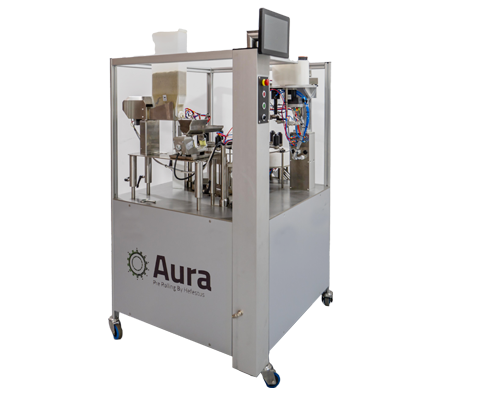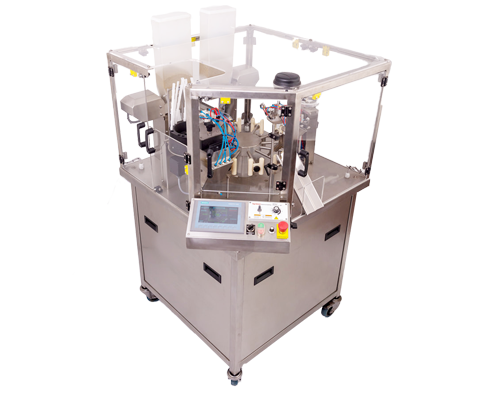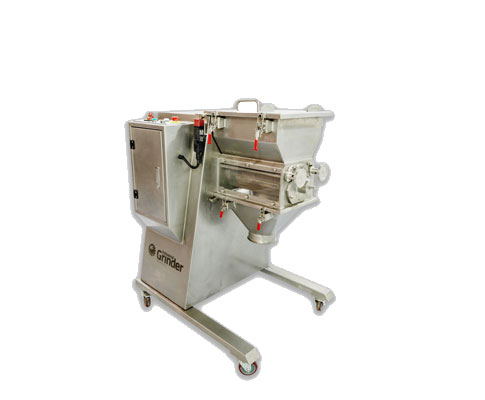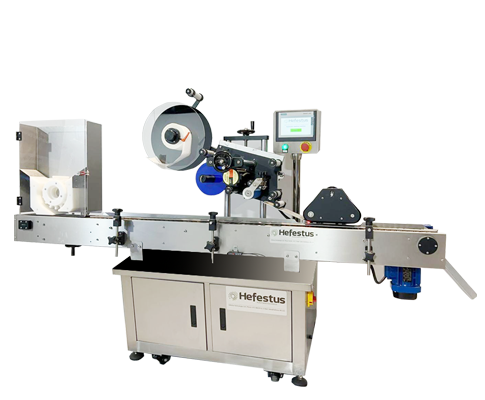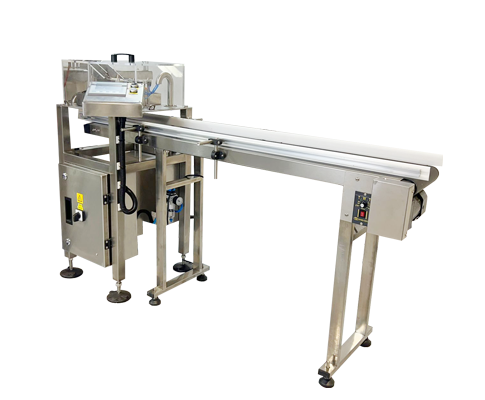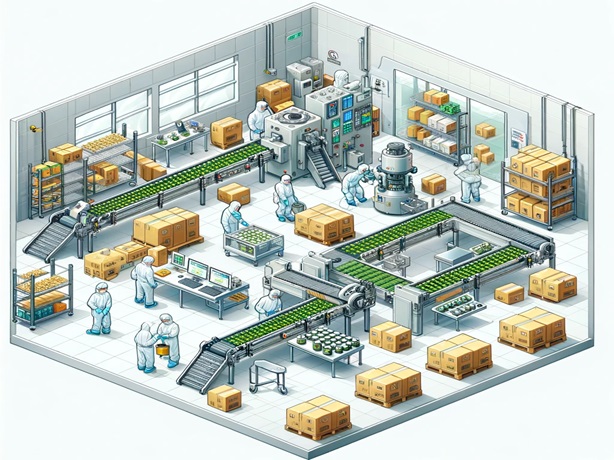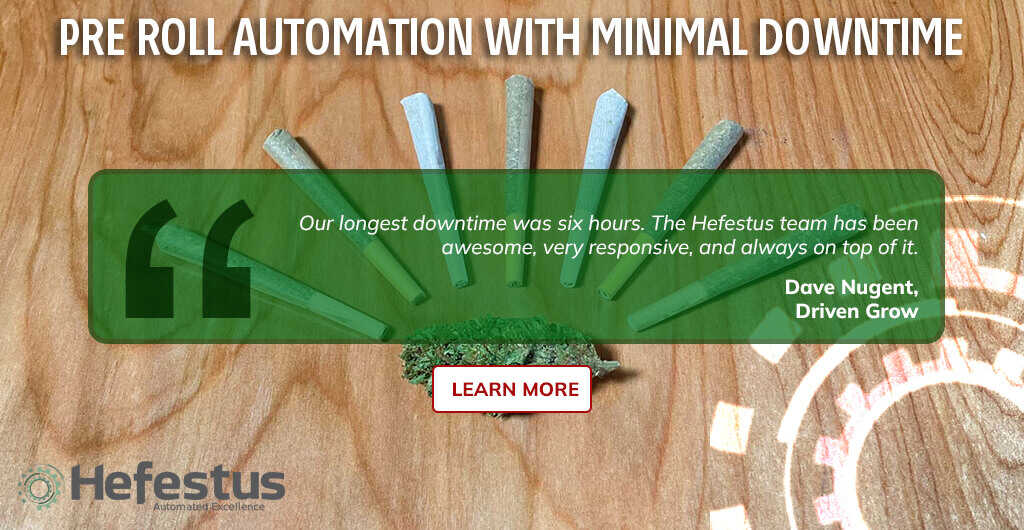In the realm of production, the floor manager is traditionally viewed as the orchestra conductor, ensuring each section of the manufacturing symphony plays in harmony.
This role has always demanded a blend of vigilance, agility, and a deep understanding of the production process.
However, with the advent of automation technology, this role is undergoing a transformative evolution.
As machines like those pioneered by Hefestus enter the scene, the floor manager’s role expands beyond the traditional bounds.
Where once their focus might have been on supervising manual tasks and maintaining a steady workflow, automation introduces a new dynamic – overseeing a sophisticated dance between human skills and machine efficiency.
This new era of manufacturing environments is characterized by increased productivity, efficiency, and innovation, all propelled by the integration of automated machinery.
Automation in Action: A New Operational Landscape
The integration of automated machinery, such as Hefestus’s advanced pre-roll production systems, has reshaped the operational landscape of manufacturing floors dramatically.
This evolution – when done right – is a veritable quantum leap in more ways than one. Automation brings with it a new rhythm, a different pace of work that is both more efficient and consistent.
In this new environment, the production floor transforms from a space of manual labor intensity to a realm of technological sophistication.
Automated machines like those from Hefestus simplify and enhance production processes all at once. Machines like the AuraX or the AuraOne are capable of producing thousands of pre-rolls at unprecedented speeds and with unparalleled precision.
This shift doesn’t diminish the human element but rather redefines it. Floor managers and workers now engage with technology that amplifies their capabilities, turning what was once a week’s work into a day’s achievement.
This change in daily operations is profound. Where floor managers once oversaw a labor-intensive process, they now manage a symphony of machines and human expertise.
The workflow becomes more about strategic oversight and less about manual task management. The result is a production floor that is more productive, dynamic, and adaptable to the ever-evolving demands of the cannabis industry.
Shift in Responsibilities: From Manual Oversight to System Management
As the production landscape morphs under the influence of automation, so too do the responsibilities of the floor manager. This evolution is marked by a significant shift…
Manual Oversight to System Supervision:
- Pre-Automation – Direct supervision of manual tasks, hands-on management.
- Post-Automation – Oversight of automated systems, focusing on efficiency and productivity.
Key Areas of Change:
- System Monitoring – Keeping a vigilant eye on automated processes, ensuring smooth operation.
- Efficiency Optimization – Continually refining machine performance for optimal output.
- Troubleshooting – Swiftly addressing any technical issues to minimize downtime.
Under the guidance and 24/7 support from Hefestus, the floor manager’s role transforms into one of a technologically savvy overseer. They become the critical link between the human workforce and the automated systems. Their expertise now includes understanding and managing advanced machinery, a skill set that is both nuanced and highly valuable in this new era of manufacturing.
Strategic Planning and Workforce Coordination
The advent of automation alters the tasks a floor manager oversees while revolutionizing their strategic role within the production process.
In this new era, the floor manager becomes a pivotal figure in orchestrating a seamless integration of human talent and machine efficiency.
It’s quite a shift, and Hefestus doesn’t leave its clients hanging here. With every installation, our technicians spend five days on site, calibrating both the machine and team for optimal performance.
Key Aspects of This Strategic Evolution:
- Cross-Functional Teamwork – Bridging the gap between various departments to ensure cohesive operation.
- Workforce Redeployment – Shifting staff from manual tasks to roles that require more critical thinking and problem-solving skills, like quality control or process optimization.
- Enhancing Collaboration – Fostering a culture where machine operators, technicians, and other staff work in tandem with automated systems for maximum efficiency.
This strategic shift is about leveraging the strengths of both human and machine. The floor manager’s role becomes less about micro-managing tasks and more about envisioning and implementing a workflow that optimally utilizes all resources. It’s a dynamic blend of tactical planning, people management, and technological acumen.
Case Study: Successful Adaptation to Automation
In a high-volume facility in Colorado, the introduction of Hefestus’s AuraX industrial pre-roll automation machine brought an initial wave of skepticism among the management team.
The floor manager, with a decade of experience in traditional manufacturing, faced the daunting task of adapting to a highly automated environment.
The Transformation:
- Pre-Automation – The manager was heavily involved in day-to-day manual supervision.
- Post-Automation – Shifted focus to system oversight, efficiency analysis, and team coordination.
Strategic Shifts:
- Developed new protocols for system monitoring and troubleshooting with support from Hefestus technicians.
- Redesigned the workflow to incorporate automated processes, fostering better teamwork and communication.
Outcomes:
- Enhanced operational efficiency and reduced downtime.
- The manager evolved into a more strategic role, contributing to broader operational improvements.
- The team adapted to new roles, leading to increased job satisfaction and professional growth.
Leading into the Future of Automation
The case studies of these floor managers illustrate a broader narrative unfolding in the world of production: a shift from traditional manual oversight to a more dynamic role of system management and strategic planning.
Hefestus’s role in this transition is pivotal, providing not just the technological solutions but also the necessary support and training to ensure seamless integration and optimization.
As we venture further into the future of cannabis automation, the role of the floor manager will continue to evolve. It’s a journey of adaptation, learning, and strategic reinvention.

